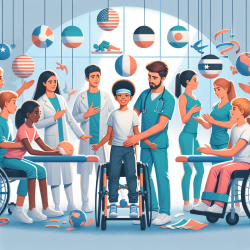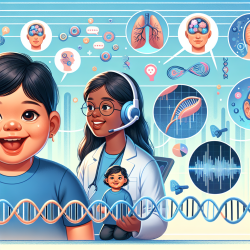Enhancing Multidisciplinary Care: Key Insights for Practitioners
In the ever-evolving landscape of healthcare, multidisciplinary care (MDC) meetings have emerged as a cornerstone for improving patient outcomes, especially in complex fields like oncology. The research article "Multidisciplinary care meeting practices across diverse international settings" by Pershad et al. sheds light on how these meetings can be optimized to foster better teamwork and communication across various income-level settings.
Understanding the Research
The study, conducted from 2019 to 2021, involved 112 institutions across 23 countries, utilizing the Pediatric Oncology Facility Integrated Local Evaluation (PrOFILE) tool. The findings revealed that 79% of these institutions held MDC meetings, with a noticeable variance based on the country's income level. While all high-income countries (HICs) conducted MDCs, only 50% of low-income countries (LICs) did so. Interestingly, the frequency of these meetings also differed, with LICs holding weekly meetings, whereas HICs typically met monthly.
Key Takeaways for Practitioners
For practitioners looking to improve their skills and enhance patient care, the study offers several actionable insights:
- Interdisciplinary Representation: Ensure diverse specialty representation in MDC meetings. Commonly included specialties are hematology/oncology, pathology, radiology, general surgery, and radiation oncology.
- Frequency and Urgency: Regular and urgent meetings can significantly impact patient outcomes. LICs demonstrated the feasibility of weekly meetings, which can be a model for other settings.
- Inclusion of Patient Preferences: Incorporating patient preferences into discussions can enhance the quality of care and patient satisfaction.
- Resource Optimization: Even in resource-limited settings, optimizing available resources and ensuring access to test results can improve meeting effectiveness.
Encouraging Further Research
The study highlights disparities and areas for improvement in MDC practices across different income settings. Practitioners are encouraged to delve deeper into these findings and explore how they can be adapted to their local contexts. Further research can help identify innovative solutions and strategies to overcome existing barriers, fostering a more inclusive and effective healthcare environment.
Conclusion
Multidisciplinary care meetings are pivotal in enhancing patient care, particularly in complex fields like pediatric oncology. By adopting the insights from this study, practitioners can improve their skills, foster better teamwork, and ultimately provide higher-quality care. To explore the original research paper and gain a deeper understanding, please follow this link: Multidisciplinary care meeting practices across diverse international settings.










